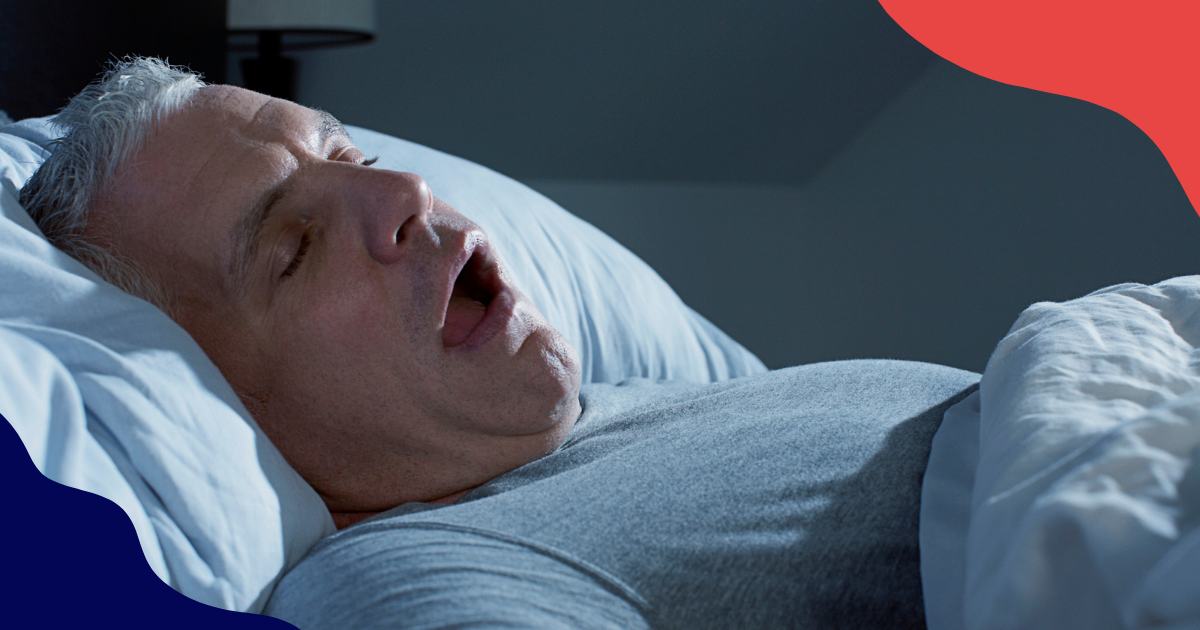When we experience hormone problems, we often suspect that they are caused by the thyroid. However, there is another endocrine gland that can trigger hormonal imbalance and sexual dysfunction. This article expounds on the connection between the pituitary gland and male sexual health.
What is the Pituitary Gland?
The pituitary gland is a pea-shaped gland located underneath the hypothalamus. It is also called the “master gland” because it produces several essential hormones that instruct other glands on their functions. You can think of the pituitary gland as the manager of the endocrine system. The pituitary gland is often associated with female health, but it should also be part of a routine check-up for men due to its significant impact on male sexual health.
Pituitary Hormones that Affect Sex
Almost all hormones produced by the pituitary gland influence sexual experience regardless of gender. Here are the relevant pituitary gland hormones that play a role in your sexual wellness:
- Follicle-stimulating Hormone (FSH) – FSH directs the testes to initiate sperm production. In women, this hormone stimulates the production of egg cells and oestrogen. That is why, if a couple is struggling to conceive, this is one of the hormones that healthcare providers check. There are many causes of male infertility, but a deficit in FSH will lead to oligospermia or a low sperm count.
- Luteinising Hormone (LH) – LH is another hormone that is critical in sexual function as it is responsible for the release of testosterone in men and ovulation in women. Note that testosterone is another hormone crucial for male fertility, erectile strength, libido, and ejaculation. If your pituitary gland does not produce enough luteinising hormone, you may develop a condition called hypogonadism or testosterone deficiency.
- Prolactin – This hormone is why the pituitary gland is commonly associated with women, as abnormalities can lead to a condition called polycystic ovary syndrome (PCOS). It is responsible for the development of mammary glands. An excess of prolactin causes a condition called gynaecomastia in men, where the breasts become larger than usual. It can also inhibit the production of sperm and testosterone, leading to infertility and hypogonadism.
- Thyroid-stimulating Hormone (TSH) – TSH is essential for the thyroid to produce thyroxine (T4) and triiodothyronine (T3), which control metabolism. A deficiency or excess of TSH can lead to thyroid diseases such as hypothyroidism, hyperthyroidism, thyroiditis (thyroid inflammation), and goitre (enlarged thyroid). Not only can these diseases disrupt metabolic processes, but they can also negatively impact erectile capacity.
- Adrenocorticotropic Hormone (ACTH) – ACTH signals the adrenal glands to produce cortisol, known as the stress hormone. An excess of ACTH leads to high levels of cortisol in the body, which can cause chronic inflammation and anxiety, both of which contribute to sexual dysfunction. It can also trigger a condition called Cushing’s syndrome.
- Growth Hormone – While not immediately associated with sexual health, growth hormone is crucial for healthy male sexual function throughout life. Though mainly linked to muscular and skeletal development, growth hormone is also necessary for the proper development of the testes. In adulthood, growth hormone helps maintain your insulin levels to regulate blood sugar which is also crucial for lasting erections.
Pituitary Disorders and Sexual Dysfunction
Since the hormones produced by the pituitary gland significantly impact sexual processes, several pituitary gland disorders are linked to male sexual dysfunction. Here are some conditions caused by pituitary gland irregularities that you should be aware of:
Hypogonadism
Hypogonadism happens when testicles do not produce enough testosterone. One cause of low testosterone is an FSH deficiency. However, an excess of ACTH can also trigger hypogonadism, as cortisol suppresses circulating testosterone. Hypogonadism causes erectile dysfunction, low sexual desire, and male infertility. It is also linked to premature ejaculation.
Hypothyroidism
Hypothyroidism occurs when you have an underactive thyroid, meaning your thyroid does not produce enough hormones, leading to a slow metabolism. Symptoms include fatigue, weight gain, hair loss, low blood pressure, sensitivity to cold, and depression. Many of these symptoms are related to erectile dysfunction, premature ejaculation, low libido, and infertility.
Hyperthyroidism
This is the opposite of hypothyroidism, meaning the thyroid is overactive and produces excessive hormones. It is still linked to erectile dysfunction because hyperthyroidism increases heart rate, leading to high blood pressure and cardiovascular diseases. Chronic high blood pressure may harden blood vessels, making it difficult for them to dilate. Penile blood vessels need to relax for proper blood flow during an erection.
Cushing’s Syndrome
Also called hypercortisolism, this condition leads to elevated levels of cortisol in your body, keeping you in a state of fight or flight. This causes widespread and consistent inflammation, high blood sugar, high blood pressure, a weakened immune system, weight gain, and fatigue. All these are detrimental to sexual health. Cushing’s syndrome is also known to cause erectile dysfunction and low sex drive in men.
Hyperprolactinaemia
Hyperprolactinaemia means that your body is producing too much prolactin. It is strongly associated with infertility in both men and women. In male sexual health, this hormonal imbalance also causes erectile dysfunction, low libido, and gynaecomastia. It is usually due to a tumour in your pituitary gland, but it can also be triggered by other conditions such as hypothyroidism, Cushing’s syndrome, chronic liver disease, and chronic kidney disease.
Pituitary Adenoma
A pituitary adenoma is a benign tumour in your pituitary gland. While it is non-cancerous, it can still impede pituitary gland function by putting too much pressure on nearby structures once it has progressed enough. Some adenomas also secrete hormones. A pituitary adenoma can cause hyperprolactinaemia. Rarely, a pituitary adenoma can cause internal bleeding.

Caring for Your Pituitary Gland and Sexual Health
A healthy pituitary gland leads to thriving sexual health. Here is how you can properly care for your pituitary gland:
- Get a Blood Test – if you suspect that you have a hormonal imbalance or one of the diseases related to the pituitary gland, get a blood test. Doctors will list the pituitary gland hormones that will be measured depending on your symptoms. Reach out to an endocrinologist, as they specialise in the endocrine system, of which the pituitary gland is a part.
- Protect Your Head – your pituitary gland is below your brain, so any head trauma can also damage your pituitary gland. A side effect of this damage is an abnormality in the hormone production of the pituitary gland. Be mindful not to hit your head. Take safety precautions like wearing a seatbelt or helmet when you are in a car or on a motorcycle.
- Make Good Sleep Mandatory – sleep deprivation is one of the biggest lifestyle causes of hormonal imbalance. Just missing a few hours of sleep causes a cortisol spike and a testosterone drop for the day. Not sleeping properly has also been linked to brain damage, pituitary gland disruption, and dementia so make sure you follow good sleep hygiene.
- Regulate Stress – even if your pituitary gland is functioning normally, if you are emotionally stressed, it will still produce a lot of ACTH. That is because your hypothalamus will detect a fight or flight response as your sympathetic nervous system is activated. To manage stress, try relaxation techniques like deep breathing, yoga, and meditation.
- Cut Off Alcohol/Cigarettes – alcohol and cigarettes also damage the pituitary gland because of the harmful chemicals they contain. They are also known endocrine disruptors, which means they interfere with many of your hormones. Alcohol and cigarettes by themselves can cause male sexual dysfunction. We recommend reducing or eliminating these, as they are toxins.
- Do Not Be Sedentary – exercise also benefits your pituitary gland. It helps regulate hormones and is good at processing cortisol, which means it will help you reduce stress. Exercise also stimulates circulation, which will benefit your erectile function. Make sure to move frequently throughout the day, as spending most of it sedentary will still cause health issues.
- Seek Needed Medical Help – if you are diagnosed with any of these diseases or struggle with sexual dysfunction, please seek proper treatment. Both pituitary gland problems and sexual disorders can trigger chronic diseases. Early intervention is key in preventing progression to the late stages or incurring permanent damage.
Conclusion
The pituitary gland is critical for optimal male sexual function. For any concerns related to the pituitary gland, we recommend that you consult an endocrinologist. And if you are struggling with ED/PE, we have a team of experts who will help you determine all possible triggers and address each of them in our premium comprehensive treatments. Book an appointment with us to rekindle intimacy and restore your sexual confidence!




